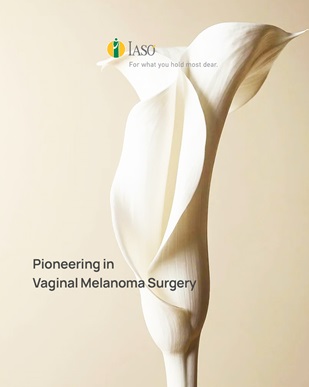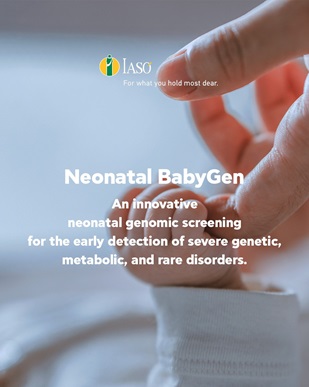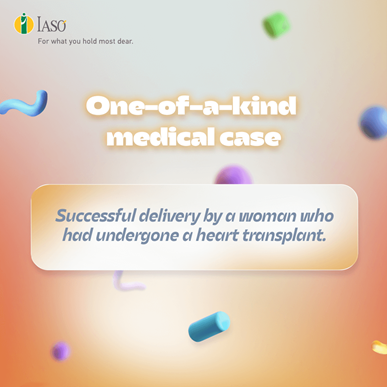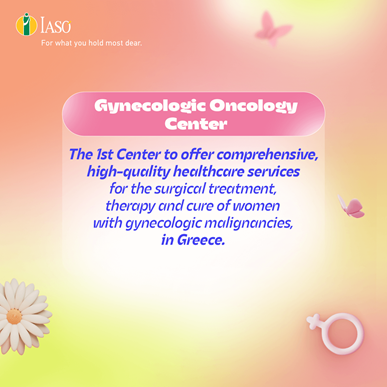The Maternal-Fetal and Perinatal Medicine Department performs all fetal ultrasounds, monitoring the progress of pregnancy (normal embryo increase and development), and performing prenatal diagnostic and therapeutic endometrial procedures in the first, second and
third trimester of pregnancy, such as amniocentesis, chorionic villus sampling, multifetal pregnancy reduction, etc.
The IASO Maternal-Fetal and Perinatal Medicine Department is headed by
Mr. Aristeidis Antsaklis, MD, PhD, FRCOG, (Hon.), Professor of Obstetrics/Gynecology at the University of Athens,
and staffed with fully qualified associates / fetal medicine specialists, who have been officially certified by the Fetal Medicine Foundation and have long experience in recognized prenatal diagnosis centers in Greece and abroad. The Department works
closely with international centers of excellence and regularly organizes events and conferences, aiming to promote the ongoing training of its doctors/associates.
The Department has an independent reception, an operating license for the
internationally recognized ASTRAIA software, eight fully-equipped exam rooms with advanced 4D/HD Live ultrasound equipment, a cardiotocography lab, and a special area for parent counseling, under the guidance of a Medical Council for cases requiring a
second opinion. The Department is supported by the IASO Central Labs or works with certified external labs for the necessary lab tests.
The Maternal-Fetal and Perinatal Medicine Department performs all the necessary prenatal diagnosis ultrasound
and invasive exams. At the end of each ultrasound exam, patients receive a detailed medical opinion, as well as the printed images.
-
Nuchal Translucency Scan (NT) & PAPP-a
What does this important test show?
The Nuchal Transparency Scan is the most important prenatal check up during the 1st trimester of pregnancy. It takes place between 11th -14th weeks and is recommended to all expectant mothers.
The NT scan detects:
- The exact gestational age
- The number of fetuses conceived
- The risk of chromosomal abnormalities [(Down syndrome (Trisomy 21), Edwards syndrome (Trisomy 18), Patau syndrome (Trisomy 13)]
- The risk of anatomical problems e.g. in the brain, heart, spine, abdominal wall, kidneys and bladder.
- The risk of pre-eclampsia: Doppler ultrasound estimates the blood flow in the mother’s uterine arteries, the result of which determines the risk of pre-eclampsia before 34th weeks.
- The risk of premature birth by measuring the cervical length.
There are 5 ultrasound indicators that determine the result:
- Cervix thickness (presence of subcutaneous fluid behind the fetal neck)
- Presence of the nasal bone
- Blood flow in the tricuspid valve of fetal heart
- Blood flow in the ductus venosus (small vessel in the fetal liver)
- Age and medical history of the mother
The NT scan is completed with biochemical testing of two maternal hormones (PappA, FBhcG) through a simple blood draw from the expectant mother.
The results of biochemical testing are combined with the ultrasound findings, through special software (Astraia), to calculate the final risk regarding the three most frequent chromosomal abnormalities.
How long does the NT scan examination take and how to prepare?
The duration depends on:
- The number of fetuses
- The mother’s BMI (Body Mass Index)
- The fetal position at the time the scan is performed.
A balanced meal is recommended before the scheduled appointment, in order to achieve good fetus mobility.
Avoid applying any body cream/body oil on the abdomen area before the scan, as it could impede the quality of the examination.
-
Second trimester Fetal Anomaly Scan
What is the Fetal Anomaly Scan and when is it performed?
The Fetal Anomaly Scan is the most important examination of prenatal control as all vital organs of the fetus are examined. It takes place between the 20th and the 24th week of pregnancy and is recommended to all expectant mothers during their 2nd trimester.
What is the purpose of the Fetal Anomaly Scan?
- Evaluation of fetal development and weight (biometry)
- Evaluation of the placenta
- Assesment of amniotic fluid composition
- Congenital anomaly screening of the fetus
- Preterm birth risk determination
Fetal organ assesment:
- Head
- Brain
- Face
- Neck
- Spine
- Chest and lungs
- Heart
- Abdominal wall
- Gastrointestinal system
- Urinary system (kidneys, bladder)
- Limbs (hands-feet)
- Reproductive organs – gender of the fetus
How long does the Fetal Anomaly Scan take and how to prepare?
The duration of the exam depends on:
- The number of fetuses
- The mother’s BMI (Body Mass Index)
- the fetal position at the time the scan is performed.
A balanced meal is recommended before the scheduled appointment, in order to achieve good fetus mobility.
Avoid applying any body cream/body oil on the abdomen area before the scan, as it could impede the quality of the examination.
-
Doppler Ultrasound
The Doppler Ultrasound is performed after the 28th week of pregnancy, usually between the 32nd and 34th week.
What is the purpose of the Doppler Ultrasound?
- Identify fetal activity and oxygen levels
- Identify fetal growth restriction
- Detect the risk of pre-eclampsia
- Detect the risk of placental insufficiency (by assessing the blood flow to and from placenta).
The purpose of this examination is to assess the health and growth of the fetus by measuring blood flow in specific vital areas.
In detail the examination measures:
- Blood flow in vessels of umbilical cord to evaluate the adequacy of the placenta
- Blood flow in the fetal cerebral vessels (middle cerebral artery) to determine brain oxygenation.
- Finally, the flow of the expectant mother’s uterine vessels to the fetus is evaluated to help determine the risk of premature birth, pre-eclampsia and residual psychical growth issues in the fetus.
3D/4D imaging is available as long as the fetal position and the expectant mother’s BMI are appropriate.
Duration of the scan and how to prepare:
The duration of the exam depends on:
- The number of fetuses
- The mother’s BMI (Body Mass Index)
- The fetal position at the time the ultrasound is performed.
A balanced meal is recommended before the scheduled appointment, in order to achieve good fetus mobility.
Avoid applying any body cream/body oil on the abdomen area before the scan, as it could impede the quality of the examination.
-
Biophysical profile
The biophysical profile is a test that combines Doppler ultrasound with Non-Stress-Test (NST) to assess fetal well-being by evaluating its development and mobility during periods of rest.
It is performed after the 34th week of pregnancy and lasts 20-40 minutes.
- NST (Non-Stress Test)
- NST is a prenatal test that is used to evaluate fetal condition by measuring the fetal heart rate response to fetal mobility.
- The test is typically performed during the third trimester of pregnancy.
- During the test, two sensors are placed on the expectant mother’s abdomen to measure the fetal heart and any uterine contractions.
- The expectant mother is prompted to press the button whenever she feels the baby is moving and the fetal heart rate is recorded for certain period (usually 20-30 minutes).
The biophysical profile (BPP) is a prenatal test that assesses the condition of the fetus by measuring various parameters such us:
- Fetal heart rate
- Fetal breathing movements
- Fetal muscle tone
- Amniotic fluid volume
- Fetal movements
Each of the five parameters is given a score of 0 to 2, with a maximum total score of 10.
The BPP is often used to determine fetal vital condition in high-risk pregnancies, such us:
- Maternal diabetes
- High blood pressure
- Fetal growth problems
- Maternal illnesses
- Decreased perception of fetal movements
- Prolongation of pregnancy
- Preeclampsia
- Intrauterine fetal growth retardation
- Premature rupture of membranes
- Multiple pregnancy
-
Amniocentesis
What is
amniocentesis?
Amniocentesis is a prenatal, minimally invasive fetal test, that
uses a small amount of amniotic fluid, in order to diagnose genetic disorders and medical conditions in the fetus.
The procedure is usually performed between 16th -19th weeks of pregnancy. A long thin needle is used to extract the fluid through the expectant mother’s abdomen.
The amniotic fluid contains cells shed by the developing fetus, and these cells can be analyzed in a laboratory to detect certain genetic or chromosomal abnormalities, as well as other fetal conditions. The test can also be used to determine fetal sex
and to assess the fetal lung maturity in certain cases.
Reasons to perform amniocentesis
- Fetal karyotype testing to diagnose chromosomal abnormalities and genetic syndromes.
- Control of congenital fetal infections (e.g., toxoplasma, cytomegalovirus).
- Control of genetic diseases (Mediterranean anemia, cystic fibrosis, hemophilia).
- Control of metabolic diseases.
- Evacuation amniocentesis in case of very increased amniotic fluid (hydramnios).
- Paternity test
- Desire of couple due to stress, mother’s age, etc.
The results of the rapid analysis of the main chromosomes are available within 2 working days, while the results of classical and molecular karyotyping take approximately 10 working days.
How to prepare:
- The expectant mother should not apply any cream/cosmetics on the abdomen area for about 2 days before the scheduled appointment.
- A light meal is recommended before the scheduled appointment.
- Sugar is not permitted on the date of the scheduled appointment.
- In case of anticoagulant treatment, instructions will be provided regarding taking medications before or after the examination.
- In case of negative Rhesus, an injection of Anti-D immunoglobulin (Rhophylac) will be given immediately after the examination in our hospital.
Risk of miscarriage
In single pregnancies, the miscarriage rate is 0,1%, while in twins, it is 0.2%. The possibility of maternal infection also occurs with a rate of 0,1% and is treated with antibiotics.
-
Chorionic villus sampling (CVS)
CVS is a prenatal, minimally invasive fetal test, that uses a small sample of the placenta to test for genetic abnormalities or chromosomal disorders in the growing fetus. The sample is extracted with the use of a long, thin needle and the process is
usually performed between the 11th and the 14th week of pregnancy.
-
Non-invasive prenatal testing (NIPT)
Our Department offers multiple NIPT options among the most reliable tests available globally.
Non - invasive prenatal test (NIPT):
The Non-Invasive Prenatal Test (NIPT) can be performed starting from the 10th week of pregnancy using a simple maternal blood draw.
It analyzes fetal DNA fragments present in the mother’s blood to determine the risk of certain genetic conditions. NIPT is recommended to all expectant mothers, regardless of age or risk as a preventive prenatal screening test.
NIPT can be especially valuable for:
- Women who are 35 years and above.
- Women with a personal or family history of chromosomal abnormalities
- Pregnancies resulting from IVF
- Cases where ultrasound findings in the first trimester of pregnancy require further investigation.
The NIPT test does not replace invasive fetal tests. In case of a positive result, confirmation is necessary through amniocentesis or CVS.
-
Specialized Fetal medicine examinations
Fetal Echo Heart
ultrasound
The fetal heart ultrasound analyzes the fetal heart in depth. Fetal echocardiography provides more information about the structure of the heart. It shows the flow of blood inside the heart, thereby allowing the doctor to detect any abnormality or malfunction
of the heart, even if the structure appears normal. It takes place from the 18th to the 24th week.
Fetal neurosonography
The fetal neurosonogram is a special focused ultrasound of the CNS (brain and spinal cord) of the fetus. It can diagnose the majority of fetal CNS anomalies accurately and it is usually performed with a combination of transabdominal and transvaginal imaging,
as well as supportively, with the use of color Doppler ultrasound and 3D/4D imaging.
Reduction of multiple
pregnancies
Multifetal pregnancy reduction may be performed between weeks 11 and 12 of gestation. It is an invasive procedure to reduce the number of fetuses if there are specific indications of serious complications both for the mother and the fetuses. A
fine needle is inserted transabdominally under continuous ultrasound guidance and cardiac asystole of the selected fetus is induced via intracardiac potassium chloride infusion. The invasive reduction procedure carries a 4% risk of miscarriage when
the initial number of fetuses is three, while it is 6-8% when the initial number is over four.














